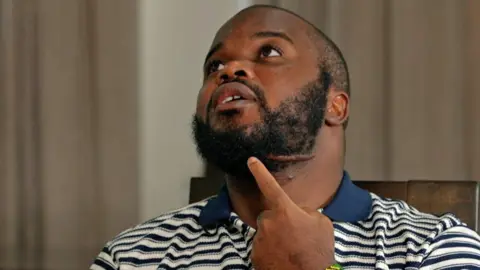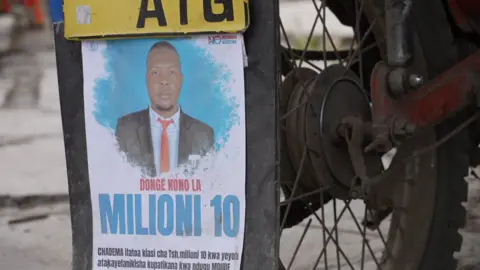'A bullet went through my skull': Tanzania abduction survivor
Social media activist Edgar Mwakabela, known as Sativa, says he was kidnapped from Dar es Salaam, flown more than 1,000km and beaten; he blames security operatives while the government denies targeting critics.
Edgar Mwakabela, a Tanzanian social media activist who posts under the name Sativa, told the BBC he narrowly survived a violent abduction last year that included beatings, interrogation and a gunshot wound he said passed through his skull.
In an interview with BBC reporter Alfred Lasteck in Mbeya, Sativa said he was seized on a highway in Dar es Salaam on 23 June. He said his captors questioned him about who was supporting his activism and why he criticised the ruling Chama Cha Mapinduzi (CCM) party, which has governed Tanzania since 1977.

Sativa said he was handcuffed, blindfolded and repeatedly struck on the head, back and legs with the flat side of a machete. He described being transported more than 1,000km (about 600 miles) to the Katavi region near the border with the Democratic Republic of Congo, where his account says his treatment continued.
"It was extremely painful," he told the BBC, describing prolonged beatings and interrogation. He said that during his captivity he was shot in the head; he claimed a bullet passed through his skull and that he came close to death. Sativa said those who held him appeared to be police officers or other operatives linked to state authorities, a charge the government denies.
The Tanzanian government has said it does not target critics of the state. In public statements, officials have repeatedly rejected allegations that security forces abduct or mistreat political opponents and have urged citizens to report any crimes through formal channels.
Sativa's case adds to concerns among activists and rights observers about space for dissent in Tanzania. He is known for using social media to criticise policies and officials, and he told the BBC his questions to the captors centred on who assisted his activism. He declined to identify specific individuals he believes were responsible, and investigators' findings have not been made public.

Human rights groups have previously raised concerns about restrictions on the media and on political expression in Tanzania. Authorities maintain that measures taken in recent years are aimed at ensuring security and public order. Independent verification of Sativa's account beyond his interview with the BBC was not included in the broadcaster's report.
Sativa said he has sought medical attention and police protection since his release. The BBC article carrying his testimony included a warning that it contained details some readers might find distressing. The government has not published a detailed response addressing the specific allegations in his interview.
The case is likely to draw further attention to the treatment of critics and the safety of activists in Tanzania as observers monitor whether authorities investigate the allegations and provide accountability for any abuses.